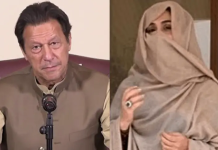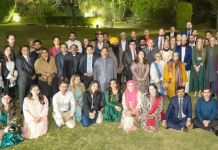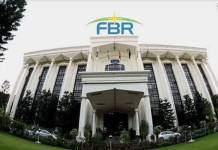ISLAMABAD, JUN 16 (APP/DNA):Lawmakers from various political parties, speaking during the National Assembly debate on the 2025–26 federal budget, praised the government for presenting what they described as the best possible fiscal plan under severe economic constraints and in the aftermath of conflict with India.
Cautioning against continued hostility from Indian Prime Minister Narendra Modi, they stressed the need for a robust budget that safeguards Pakistan’s sovereignty and strengthens national resilience.
During the ongoing budget debate in the National Assembly, Javed Hanif of the Muttahida Qaumi Movement (MQM) commended the government’s economic team for presenting what he described as the best possible budget under challenging conditions set by the International Monetary Fund (IMF).
He noted that most economic indicators were showing positive trends and emphasized that a strong and stable Pakistan was essential for preserving national sovereignty, particularly in light of recent tensions with India.
Supporting this sentiment, Anjum Aqeel stated that the budget was drafted in the aftermath of a conflict with India and warned that Indian Prime Minister Narendra Modi continued to pose a threat.
He stressed the need for a comprehensive fiscal strategy that reinforces sovereignty and national defense. Aqeel also appreciated the budget’s focus on supporting low-income groups, with provisions for salary and pension increases, but called for the removal of the tax on solar energy systems.
Usman Badini, of JUI (F) in his remarks, underscored the urgent need to improve basic infrastructure in Balochistan, particularly in water supply, education, and road networks. He urged the government to increase allocations for these sectors under the Public Sector Development Programme (PSDP). Aqeel also praised the role of the Pakistan Army, expressing confidence in the armed forces’ continued ability to defend the country.
He also called for the abolition of taxes on solar energy systems to promote renewable energy adoption. In addition, he emphasized the need to equip the country’s youth with modern skills through training in emerging technologies such as artificial intelligence. Highlighting gaps in public health, he urged the government to improve healthcare infrastructure and ensure access to quality medical facilities at the grassroots level.
Pakistan People’s Party’s Abdul Qadir Patel highlighted that the budget was formulated amid ongoing global conflicts. Stressing the importance of national unity, he asserted that solidarity is crucial to overcoming unforeseen challenges.
Patel also voiced concerns over the broad powers granted to the Federal Board of Revenue (FBR) and criticized the imposition of an 18 percent General Sales Tax (GST) on solar panels.
Khursheed Junejo, from Pakistan People Party urged the government to explain how performance of different indicators of economy has boosted. He lamented that the agriculture, which was backbone of the country’s economy, did not perform well.
He paid tribute to Pakistan military for taking bold stand on Kashmir, Water and other pressing issues.
Engineer Hameed Hussain of Majlis Wahdat-e-Muslimeen Pakistan, while speaking on the occasion, lauded Pakistan’s decision to stand with Iran at this time of test and expressed the hope that it would continue to do so. He urged the government to review the decision to impose taxes that affect common man. He also urged for establishing Danish Schools in erstwhile tribal area.

















